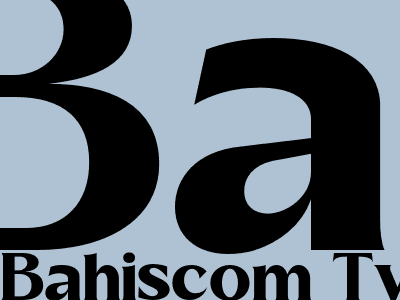
Bahiscom Twitter Resmi 0
A Comprehensive Guide to Optimizing Your Website for Search Engines and User Experience
Introduction
In today's digital landscape, having a strong online presence is crucial for businesses and organizations alike. Search engine optimization (SEO) plays a vital role in driving organic traffic to your website, increasing visibility, and ultimately, boosting revenue. This comprehensive guide will delve into the intricacies of SEO, providing actionable insights and best practices to help you optimize your website for both search engines and user experience.
Understanding Search Engine Optimization
SEO encompasses a wide range of strategies and techniques aimed at improving the ranking of your website in search engine results pages (SERPs). By optimizing your website's content, structure, and technical aspects, you can increase its visibility and attract targeted traffic.
On-Page Optimization: Enhancing Content and Structure
On-page optimization focuses on improving the content and structure of your website's individual pages. This includes:
- Keyword Research: Identifying and incorporating relevant keywords into your content, titles, and meta descriptions.
- Content Optimization: Creating high-quality, informative, and engaging content that resonates with your target audience and aligns with search intent.
- Header Tags: Using properly structured header tags (H1, H2, etc.) to organize and prioritize content, making it easier for search engines and users to understand.
- Internal Linking: Strategically linking to other relevant pages on your website, creating a seamless user experience and helping distribute link equity.
Technical Optimization: Improving Website Performance
Technical optimization involves addressing the technical aspects of your website that impact its performance and user experience. This includes:
- Page Speed: Ensuring that your website loads quickly, as slow loading times can negatively impact user engagement and search engine rankings.
- Mobile Optimization: Optimizing your website for mobile devices, which have become increasingly important as more users access the internet through smartphones.
- Site Architecture: Creating a clear and logical website structure that is easy for both search engines and users to navigate.
- XML Sitemap: Submitting an XML sitemap to search engines, which provides a comprehensive list of all the pages on your website, helping them index your content more efficiently.
Off-Page Optimization: Building Backlinks and Authority
Off-page optimization refers to the strategies that involve building backlinks and establishing authority for your website. This includes:
- Link Building: Acquiring high-quality backlinks from reputable websites, which helps search engines understand the credibility and relevance of your website.
- Social Media Marketing: Engaging with your target audience on social media platforms, building relationships, and promoting your content.
- Content Marketing: Creating valuable, shareable content that attracts links and establishes your website as a thought leader in your industry.
User Experience: Prioritizing Accessibility and Engagement
User experience (UX) plays a crucial role in SEO. By optimizing your website for UX, you can improve user engagement, reduce bounce rates, and ultimately enhance your search engine rankings. This includes:
- Content Accessibility: Ensuring that your website's content is accessible to all users, including those with disabilities.
- Intuitive Navigation: Creating a user-friendly website with clear navigation, making it easy for users to find the information they need.
- Optimized Call-to-Actions: Incorporating clear and compelling calls-to-action throughout your website, guiding users towards desired actions.
Conclusion
Optimizing your website for search engines and user experience is an ongoing process that requires a comprehensive approach. By implementing the strategies and techniques outlined in this guide, you can improve your website's visibility, attract targeted traffic, and ultimately achieve your online marketing goals. Remember, the key is to provide valuable content, enhance user experience, and build credibility through strategic link building. By embracing these principles, you can establish a strong online presence and drive lasting success for your business or organization.

Komentar